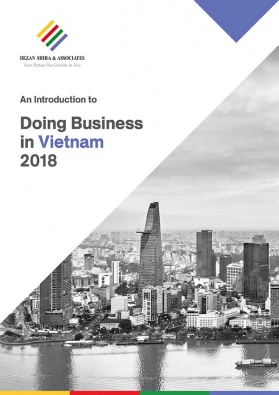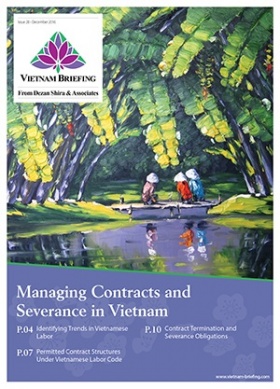Vietnam to Implement Multiple FTA Tariff Cuts in 2018
Vietnam’s Ministry of Finance has announced 10 draft decrees on preferential tariff rates for 2018-2020 related to its 10 Free Trade Agreements (FTAs). Most of the goods will enjoy a zero percent import tariff in effect from January 1, 2018, in line with the country’s commitments within the FTAs framework, while others will go through a gradual reduction until 2022. With reduced tariffs leading to a reduction in import tax revenues, the government aims to offset it by an increase in domestic tax collection.
Trade agreements
The trade deals include the ASEAN FTA (ATIGA), FTAs between ASEAN and Japan, India, Australia – New Zealand, the Republic of Korea, and China. Also included are FTAs between Vietnam and Korea, Japan, Chile, and the Eurasian Economic Union.
ASEAN Trade in Goods Agreement (ATIGA)
Under ATIFA, Vietnam has already cut 6,900 tariff lines, or 72 percent of all tariff lines, to zero percent in 2014. It reduced more than 1,700 other lines to zero percent in 2015. By 2018, Vietnam is committed to removing all import tariffs.
Items to be subjected to zero percent import tariff include automobile, motorbike, vehicle components, vegetable oil, tropical fruits, home electronic appliances, milk, and dairy products.
Certain agricultural products such as poultry, chicken, citrus fruits, brown rice, processed meat, and sugar will continue to have a tariff rate of five percent.
ASEAN China FTA
Items to attract zero percent import tariffs from 2018 include chicken, coffee, raw tea, processed food, apparel fabrics, clothes, electronic equipment, and electrics.
Viet Nam-Japan Economic Partnership Agreement (VJEPA)
Under the VJEPA, zero percent rate will be applied to 456 tariff lines for items such as construction stones, steel, aluminum, sugar, machinery, equipment, and vehicle parts.
Vietnam-Korea FTA
From 2018, import tariffs for 704 tariff lines will be reduced to zero percent for items such as seafood, wheat, confectionery, diesel fuel, machinery, and electronic equipment.
Viet Nam – Eurasian Economic Union FTA
Under this Vietnam – EAEU FTA, 5,535 tariff lines have been reduced to zero percent in 2018 for items such as milk, dairy products, automobile, and spare parts, iron and steel, and steel products.
Other FTAs such as the ASEAN – Korea, ASEAN – Japan (AJCEP), ASEAN – India (AIFTA), ASEAN – Australia – New Zealand, and Vietnam – Chile will progressively reduce tariffs to zero percent by 2022. For example, under the AJCEP, the existing five percent import tax rate for various commodities will reduce to zero percent by 2019. Similarly, under AIFTA, items having current import tax rates between 1 to 3 percent will be subjected to zero percent import tariffs by 2019. Under the AIFTA and VKFTA, current import tax rates ranging from 10 to 20 percent for certain commodities will see a gradual reduction to zero percent by 2022.
Impact of FTAs
Exporters will continue to benefit from the reduced tariffs, leading to a deeper economic integration. This will further lead to an increase in foreign investments, competition, production, and business efficiency. In addition, this will also reduce the input cost for domestic firms.
As for the State budget, tariff commitments in the last decade have affected the annual growth rate of State Budget revenues of the customs. The average rate of collection increased annually by 10 percent from 2007-2014, while in 2015 and 2016, the growth rate was only 3.6 percent and 3.8 percent respectively. However, the increase in imports/exports and subsequent reduction in import tax revenues will be offset by an increase in domestic tax collection such as corporate and personal income tax.
Vietnam Briefing is produced by Dezan Shira & Associates. The firm assists foreign investors throughout Asia and maintains offices in China, Hong Kong, Indonesia, Singapore, Vietnam, India, and Russia.
Please contact vietnam@dezshira.com or visit our website at www.dezshira.com.
- Previous Article Vietnam: New Laws to be in Effect in 2018
- Next Article Vietnamese SMEs to Join ASEAN Goods Self-Certification








